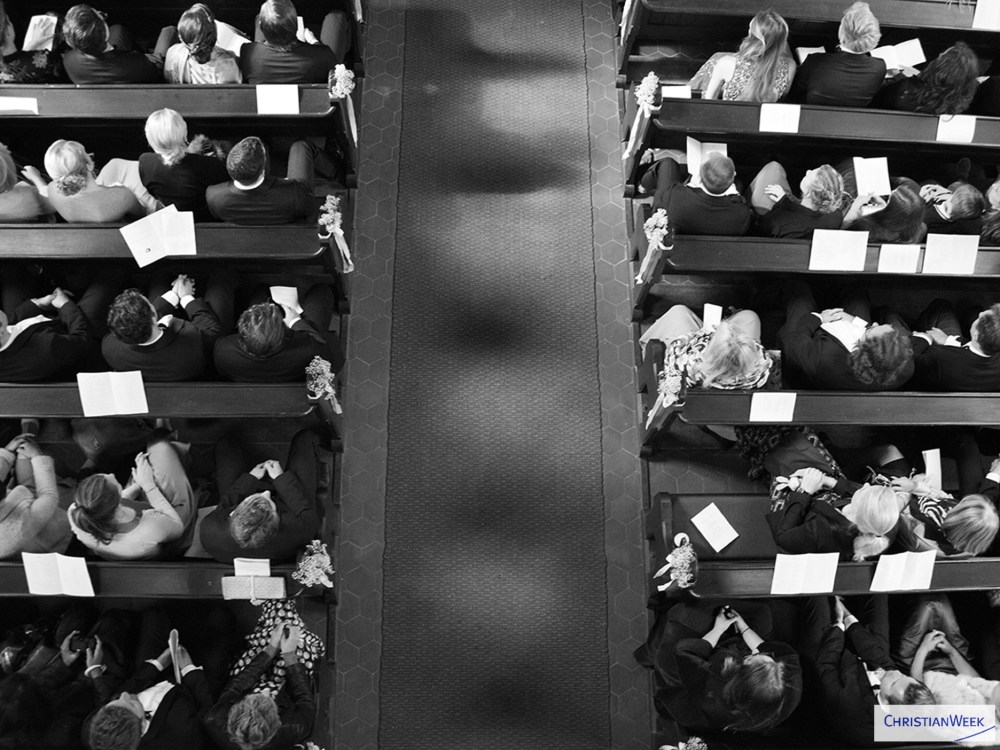
The Church’s worship as a protest against individualism
By
Jeff K. Clarke
Senior Editor and Staff Writer
|
January 29, 2017
Some time ago I came across this quote and immediately resonated with its message –
The songs we sing give words to our beliefs, help us to express our emotions to God, enable us to revisit stories from Scripture, and help to give us a glimpse of God’s future where we will be joined together in worship. Through song we protest individualism by uniting our voices in worship to God who calls us as a unified people to participate in his Mission. (from Counterpoint Church)
Wow! I love everything about it. If you’re looking for a mission statement for local church worship, as well as the church at large, look no further.
Here we find a statement that can define, shape, inform, and unite people around the goal of worship, God. We find a statement that includes the individual, but only within the sphere of the community. We find a statement that forces us to see worship for what it is and can be.
The first sentence (“The songs we sing give words to our beliefs”) in many ways shapes the remaining part of the music manifesto. That is, what we actually say in our songs matter.
This isn’t an indictment against hymns or contemporary music styles, high or low church liturgies, the kinds of instruments used, or any other part of a worship service, for we can easily locate good and bad songs in virtually every period of church history.
What it does say, however, is that songs are far more than catchy tunes, guitar solos, and complex melodies. In fact, the music itself plays a secondary role and actually serves as a medium for something more.
New Testament backdrop for the church's song
Allow me to illustrate what I mean through two passages – Ephesians 5:18 and Colossians 3:16.
“Speak to one another with psalms, hymns and spiritual songs” (Ephesians 5:18)
“Teach and admonish one another . . . as you sing psalms, hymns and spiritual songs” (Colossians 3:16)
From these two passages we see a common theme begin to take shape. “Psalms, hymns and spiritual songs” were meant to be used as a means to teach and instruct one another in the faith.
In the Colossians passage, for instance, Paul instructs the Church to “teach and admonish one another (with the word of Christ)” as they “sing psalms, hymns and spiritual songs.”
The “word of Christ” simply refers to all that Jesus taught and demonstrated during His earthly ministry. It also has in mind what the apostles taught in the remainder of the New Testament.
Paul taught that this “word of Christ” ought to “dwell in you richly.” To “dwell” also means to take up residence in; to live and abide. Basically, he was saying that we should allow Christ’s teaching to take up residence within us. This can and should occur as we “teach one another” in song.
In the Early Church, songs contained and expressed some of the most important aspects of Christian belief. In fact, many of the earliest creeds and confessions were recorded by Paul in a number of his letters (cf. 1 Corinthians 15:1-2, 3-5, 20-28; Ephesians 5:14; Philippians 2:6-11; Colossians 1:15-20; 1 Timothy 3:16).
Here is an example –
15 The Son is the image of the invisible God, the firstborn over all creation. 16 For in him all things were created: things in heaven and on earth, visible and invisible, whether thrones or powers or rulers or authorities; all things have been created through him and for him. 17 He is before all things, and in him all things hold together. 18 And he is the head of the body, the church; he is the beginning and the firstborn from among the dead, so that in everything he might have the supremacy. 19 For God was pleased to have all his fullness dwell in him, 20 and through him to reconcile to himself all things, whether things on earth or things in heaven, by making peace through his blood, shed on the cross. (Colossians 1:15-20 – NIV)
Many involved in New Testament scholarship believe these passages were early forms of Christian confessional materials, some of which were probably put to music (For additional reading, see Richard Longenecker’s book, New Wines in Fresh Wineskins).
In reading them, you will begin to notice that they all teach core aspects of Jesus's person and life. What we can glean from this is that sound belief and its transmission were very important to the membership of the Early Church.
They would often formulate these statements of faith as a means of making it clear for all who Christ was and what He had accomplished. They were summary statements. Because they were short, they could be more easily memorized and provide a vehicle through which they could grasp the significance of Jesus Christ.
While it may be challenging to remember all of Christ’s teachings, one could be able to recall the most essential parts of it when put to music. The rhythmic structure of the material, when combined with music, would have made it much easier to recite.
Contemporary significance
Against this backdrop, we can begin to see the importance of song within the church. It serves as a vehicle for teaching us the biblical story and provides us with the means to better understand and live it out.
Whether it comes in the form of a psalm, hymn, or spiritual song, they all should serve this greater and higher purpose. All of our songs ought to reflect the clear teaching of Scripture. And, as we learn to “speak to one another” in these ways, it will serve a unifying purpose.
Singing is meant to bring the church together under the common banner of Jesus Christ. The variety of form songs can take is meant to incorporate all people into the church’s worship. No one should be left out; no one style should be emphasized to the demise of another. A blending of forms is best. All can actively participate in such an atmosphere.
Unfortunately, many battles have been fought and even churches split, over forms. This is the opposite intention and purpose of worship – which is to unite.
When we intentionally blend all forms into our worship, all people, regardless of preference, will be able to participate. In doing so, all will be mutually strengthened as they “speak to one another” the wonderful truths of Christ. This is what it means to “worship in spirit and in truth.”



